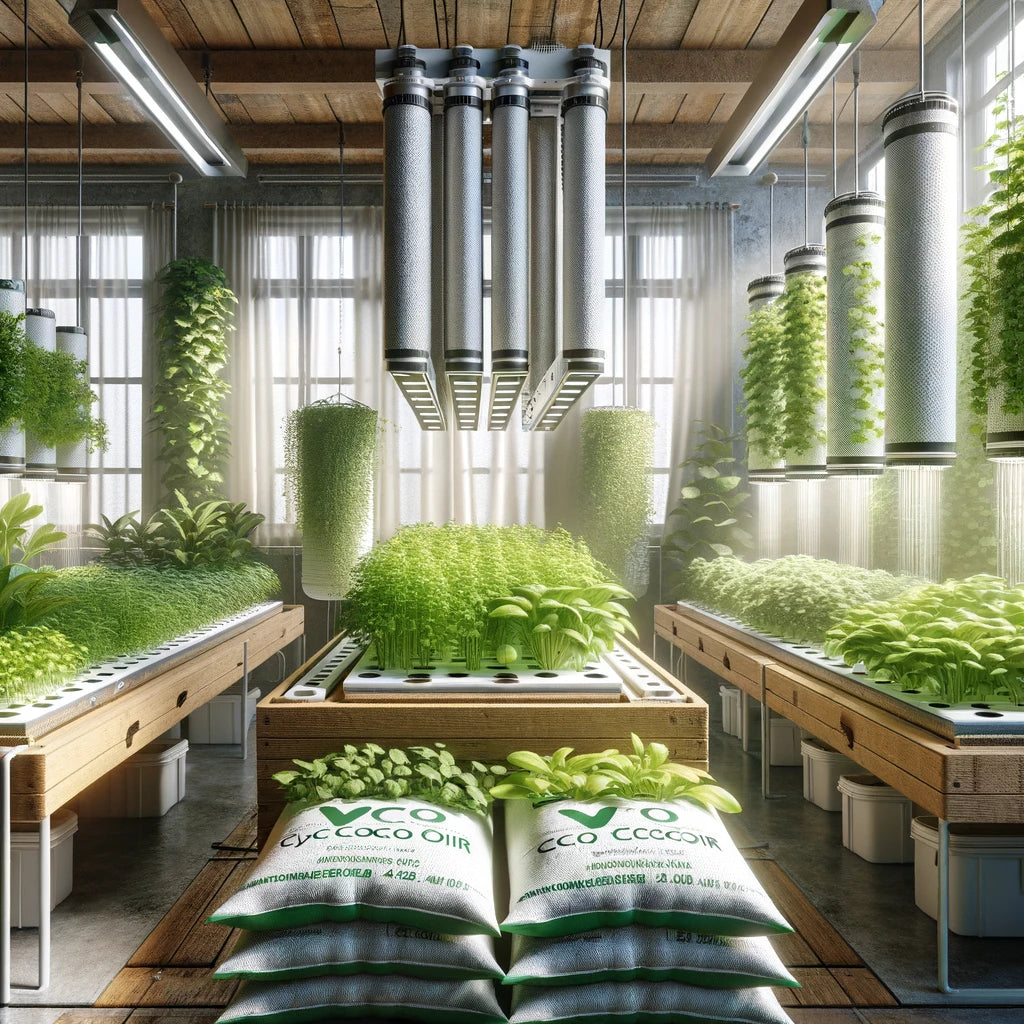
A Professional Gardener's Analysis of CYCO's Coco-Based Substrates
Share
The complexities of hydroponic and soil-less cultivation requires not just skill but also a deep understanding of how different substrates impact plant growth. CYCO's offerings—Coco Coir, Coco Perlite, and Coco Bitz—have been subjects of discussion among professionals for their specialized roles in plant cultivation. Here’s an expert perspective on the practicalities of incorporating these substrates into a professional gardening regimen.
CYCO Coco Coir: The Professional's Choice?
Pros:
- Structural Integrity: Unlike peat, coco coir doesn’t compact over time, ensuring consistent aeration and water drainage throughout the growing cycle.
- Nutrient Retention: Capable of holding and releasing nutrients as plants require, reducing the need for frequent fertilization.
- Sustainability: Coco coir is a by-product of the coconut industry, making it a more environmentally responsible choice compared to peat moss.
Cons:
- Electrical Conductivity (EC) Levels: Fresh coco coir can contain high levels of salts, which may require thorough rinsing or pre-treatment to avoid nutrient lockout.
- Quality Variability: The physical and chemical properties of coco coir can vary significantly between suppliers, necessitating a reliable source for consistent quality.
CYCO Coco Perlite: Enhancing Aeration and Drainage
Pros:
- Improved Oxygenation: Perlite increases the air porosity of the medium, crucial for root respiration and preventing anaerobic conditions.
- Enhanced Drainage: Reduces the risk of water logging, a common issue in purely organic substrates, by improving the medium's structure.
- Root Zone Temperature Regulation: Perlite can help moderate root zone temperatures, providing a more stable environment for root growth.
Cons:
- Altered Watering Regimen: The increased drainage may require adjustments to watering frequency, posing a challenge for automated systems.
- Physical Stability: Over time, perlite can rise to the top of the medium, reducing its effectiveness in deeper root zones.
CYCO Coco Bitz: The Best of Both Worlds?
Pros:
- Optimal Water to Air Ratio: Combines the water-holding capacity of coco coir with the aeration benefits of larger coco chips.
- Root Support: The chunkier texture supports physical root development, promoting stronger, healthier plant growth.
- Versatility: Suitable for a wider range of plant types, especially those preferring drier conditions between waterings.
Cons:
- Inconsistency in Mix: Finding the perfect balance of moisture retention and drainage can be challenging, requiring trial and error for optimization.
- Cost vs. Benefit: While offering an integrated solution, the price point may be hard to justify for all but the most specialized applications.
Concluding Thoughts
CYCO’s substrates present a sophisticated toolkit for the professional gardener, each with its distinct advantages and challenges. The decision to use Coco Coir, Coco Perlite, or Coco Bitz should be informed by specific cultivation goals, plant species, and environmental conditions. While they offer promising benefits for optimizing plant health and yield, professionals must weigh these against potential drawbacks, such as the need for pre-treatment or adjustments to cultivation practices.
In sum, CYCO provides valuable options for those in hydroponics and soil-less cultivation, but like all tools in a gardener's arsenal, they must be chosen with care and consideration.
